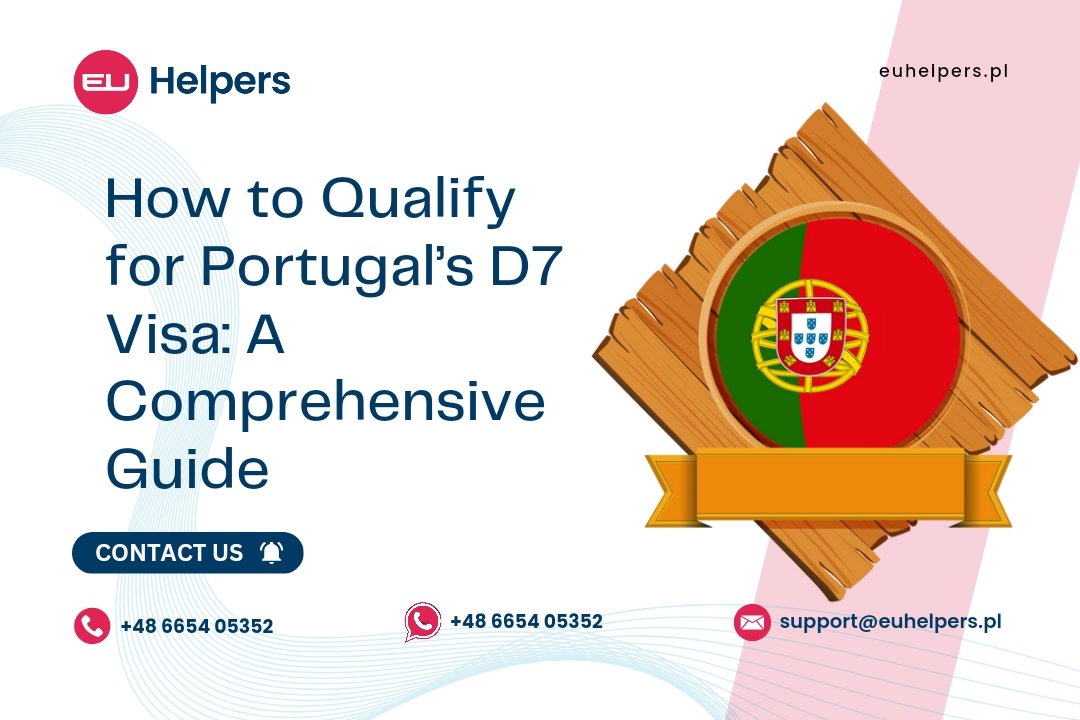Portugal’s D7 Visa, often referred to as the Passive Income Visa, is an attractive option for non-EU nationals looking to reside in Portugal. It is especially popular among retirees and individuals who can support themselves through a stable passive income. This visa offers a pathway not only to temporary residency but potentially to Portuguese nationality after several years.
Eligibility Criteria for the D7 Visa
To benefit from Portugal’s D7 Visa, applicants must meet several key requirements:
1. Age Requirement: Applicants must be at least 18 years old. This ensures that the applicant is an adult and can independently manage their financial affairs.
2. Clean Criminal Record: A clean criminal record is mandatory. Applicants must provide a criminal background check from their home country or any country where they have lived for more than a year. This is a crucial step in the application process as it helps ensure the safety and security of the Portuguese community.
3. Private Health Insurance: Health coverage is another important requirement. Applicants must have private health insurance that is valid in Portugal. This ensures that they can access medical services while living in the country without relying solely on the Portuguese public health system.
4. Proof of Passive Income: The cornerstone of the D7 Visa is proof of passive income. Applicants must demonstrate that they have a stable, regular income that is sufficient to support themselves and any dependents. This income can come from various sources, including:
- Movable property (e.g., dividends from shares)
- Real estate (e.g., rental income)
- Financial investments (e.g., interest or annuities)
- Intellectual property (e.g., royalties from books, patents, or other creative works)
The minimum income requirement is currently set at €820.00 per month. This amount is aligned with the Portuguese minimum wage, ensuring that visa holders can live comfortably without requiring employment in Portugal.
Duration and Extension of the Visa
The D7 Visa is initially valid for two years. After this period, visa holders can apply for an extension. The extension, if granted, lasts for an additional three years. During this time, visa holders must continue to meet the income requirements and other conditions stipulated by the visa.
After five years of continuous residency in Portugal under the D7 Visa, holders may be eligible to apply for permanent residency or even Portuguese nationality, provided they meet all the necessary legal requirements, including language proficiency and integration into Portuguese society.
Application Process and Timeline
The application process for the D7 Visa is relatively straightforward, but it requires careful attention to detail. Applicants must gather and submit all required documentation, which typically includes proof of income, health insurance, a clean criminal record, and a valid passport.
Once the application is submitted, the processing time is usually up to 60 days. This timeline is dependent on the completeness of the application; delays can occur if additional information or documentation is requested by the Portuguese authorities.
The D7 Visa offers a fantastic opportunity for individuals with a reliable passive income to live in Portugal, a country known for its high quality of life, beautiful landscapes, and rich cultural heritage. By meeting the necessary requirements and successfully navigating the application process, visa holders can enjoy the benefits of residing in Portugal, with the possibility of eventually becoming a Portuguese citizen.

